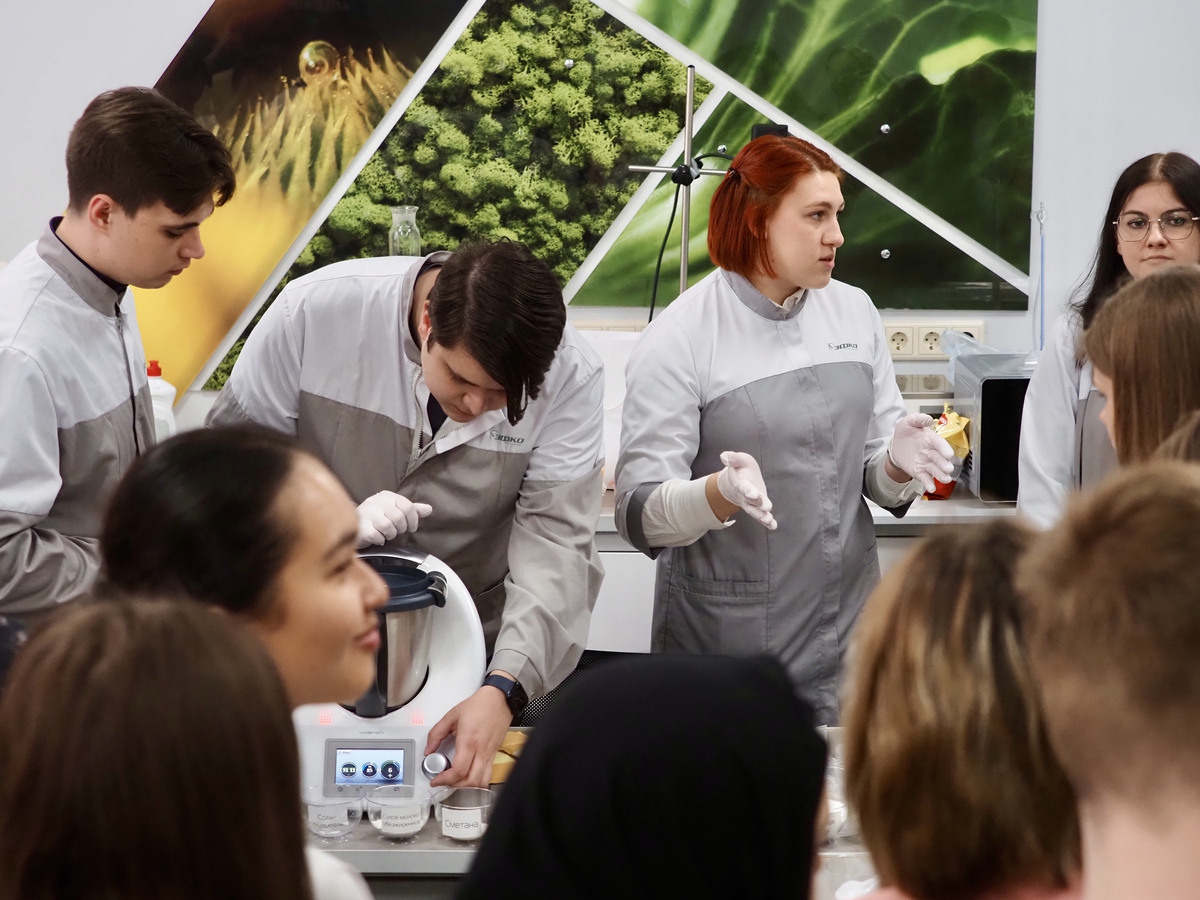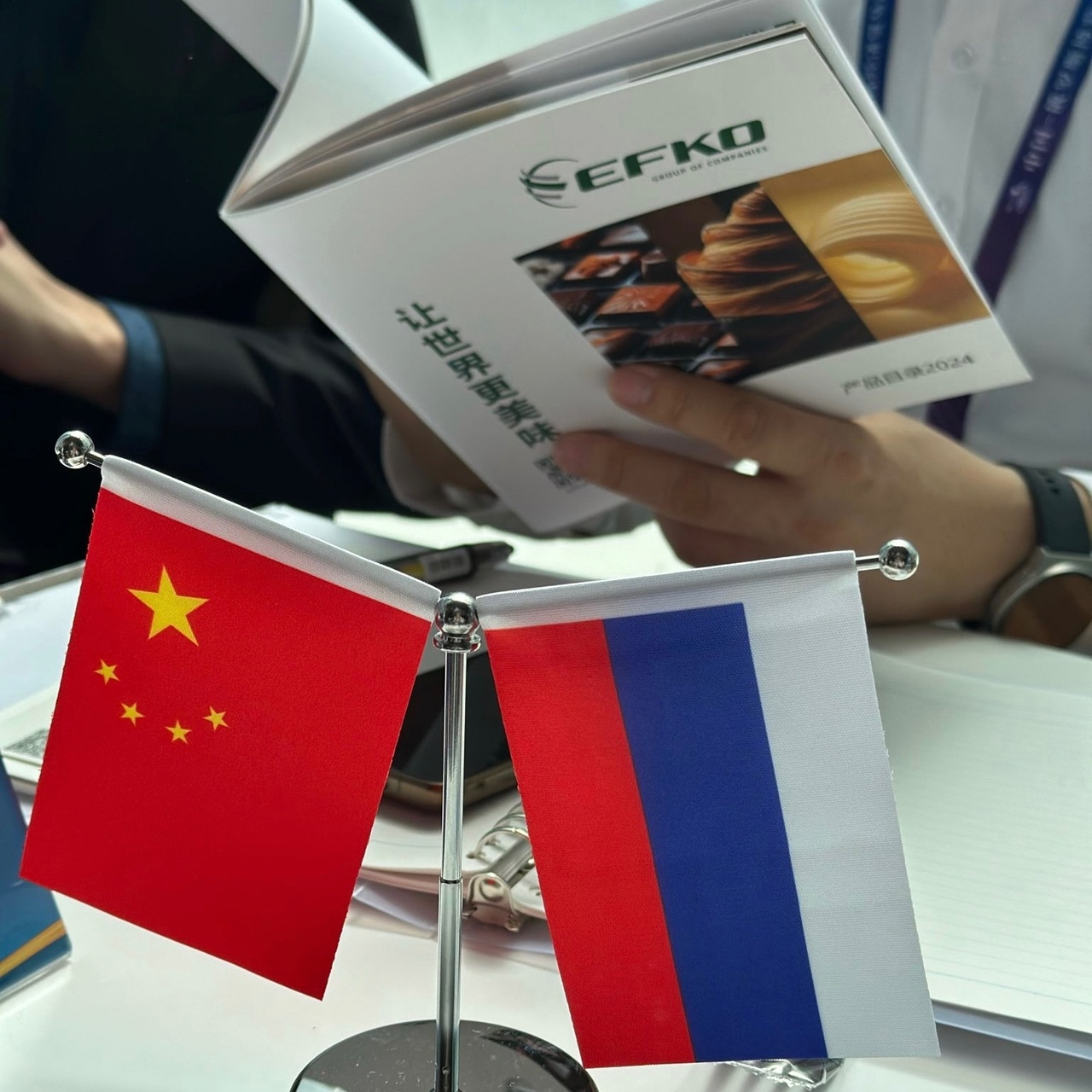The food industry today is undergoing changes. To replace imports, new technologies and new products are needed. Innovation is the key to development. The economy needs young specialists who can realize complex projects — develop new ingredients and bring them to the market. The Oils and Fats Division of EFKO met with students and applicants from two of the largest universities in the Black Earth region of central and southern Russia and talked about how to build a career.
This spring, colleges and universities traditionally hold major events for students — open days and career days. Our company is one of the largest employers in the Black Earth region.
Voronezh State University and Voronezh State University of Engineering Technologies are our educational partners. Students acquire knowledge here, and we help them apply it in practice — in our production facilities.
Now new fields are opening up for Russian business that no one has managed to occupy yet. And this means that many projects are looking for those who will be able to realize them. A whole front of interesting, intensive and useful work. During the meeting with students, specialists from the Oils and Fats Division talked about the prospects in our company.
“There is a myth that it is difficult to get into such large companies as ours," says Anastasia Mikhalyova, the Head of the Human Resources Department. — But we have worked out a scheme of work: we invite talented students for internships. For a young specialist, an internship is an opportunity to get to know the company where he wants to work while still studying. We offer students the opportunity to immerse themselves in the life of a large industrial company. We show them everything from the inside and honestly tell them what it means to work in a modern production facility with well-established business processes and a clear structure. At the same time, during the internship, we evaluate young specialists and guide their potential in the right direction”.
Today's students are not only making conscious choices about their future careers, they are also making ambitious plans for the future.
“I really wanted to work in a field that our world really needs on a global scale. And I think that's why I wanted to study at the Faculty of Chemistry," said Anastasia Ulyanova, a student at Voronezh State University. — I really liked the quote from one of our teachers who said: "You know, an ill-trained chemist is more frightening than an ill-trained doctor”.
«I have always dreamed of changing the world for the better, and I believe that with the help of biology it is definitely possible," says Nikolay Voitenkov, one of the VSU students.
In fact, many of EFKO's managers are graduates of specialized universities. They fulfilled their dreams and made it their life's work to do exactly what they were interested in.
“Today, students have a great desire to work in your company, and they, in turn, are in demand from you," said Ekaterina Mikhailyuk, Head of the Center for Career Development and Employer Branding at VSU. — It is very important for us that EFKO — such a big and important for our region and our country company — takes part in Career Days, because it is a key event for our students and the university as a whole”.
We give young people the opportunity to get involved in serious projects, realize their potential, try different directions, become successful and achieve financial stability.



